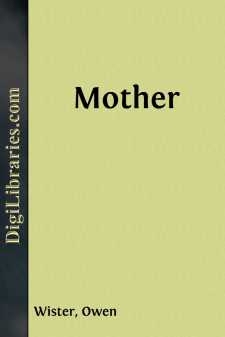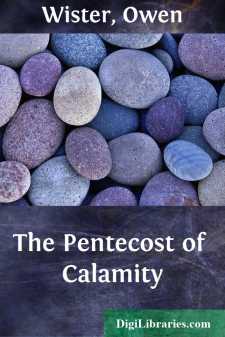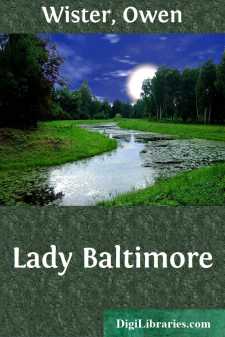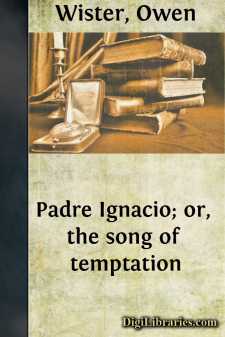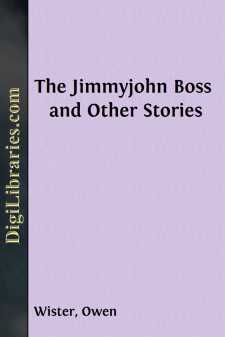Categories
- Antiques & Collectibles 13
- Architecture 36
- Art 48
- Bibles 22
- Biography & Autobiography 813
- Body, Mind & Spirit 142
- Business & Economics 28
- Children's Books 15
- Children's Fiction 12
- Computers 4
- Cooking 94
- Crafts & Hobbies 4
- Drama 346
- Education 46
- Family & Relationships 57
- Fiction 11829
- Games 19
- Gardening 17
- Health & Fitness 34
- History 1377
- House & Home 1
- Humor 147
- Juvenile Fiction 1873
- Juvenile Nonfiction 202
- Language Arts & Disciplines 88
- Law 16
- Literary Collections 686
- Literary Criticism 179
- Mathematics 13
- Medical 41
- Music 40
- Nature 179
- Non-Classifiable 1768
- Performing Arts 7
- Periodicals 1453
- Philosophy 64
- Photography 2
- Poetry 896
- Political Science 203
- Psychology 42
- Reference 154
- Religion 513
- Science 126
- Self-Help 84
- Social Science 81
- Sports & Recreation 34
- Study Aids 3
- Technology & Engineering 59
- Transportation 23
- Travel 463
- True Crime 29
Philosophy 4
by: Owen Wister
Categories:
Description:
Excerpt
I
Two frowning boys sat in their tennis flannels beneath the glare of lamp and gas. Their leather belts were loosened, their soft pink shirts unbuttoned at the collar. They were listening with gloomy voracity to the instruction of a third. They sat at a table bared of its customary sporting ornaments, and from time to time they questioned, sucked their pencils, and scrawled vigorous, laconic notes. Their necks and faces shone with the bloom of out-of-doors. Studious concentration was evidently a painful novelty to their features. Drops of perspiration came one by one from their matted hair, and their hands dampened the paper upon which they wrote. The windows stood open wide to the May darkness, but nothing came in save heat and insects; for spring, being behind time, was making up with a sultry burst at the end, as a delayed train makes the last few miles high above schedule speed. Thus it has been since eight o'clock. Eleven was daintily striking now. Its diminutive sonority might have belonged to some church-bell far distant across the Cambridge silence; but it was on a shelf in the room,—a timepiece of Gallic design, representing Mephistopheles, who caressed the world in his lap. And as the little strokes boomed, eight—nine—ten—eleven, the voice of the instructor steadily continued thus:—
"By starting from the Absolute Intelligence, the chief cravings of the reason, after unity and spirituality, receive due satisfaction. Something transcending the Objective becomes possible. In the Cogito the relation of subject and object is implied as the primary condition of all knowledge. Now, Plato never—"
"Skip Plato," interrupted one of the boys. "You gave us his points yesterday."
"Yep," assented the other, rattling through the back pages of his notes. "Got Plato down cold somewhere,—oh, here. He never caught on to the subjective, any more than the other Greek bucks. Go on to the next chappie."
"If you gentlemen have mastered the—the Grreek bucks," observed the instructor, with sleek intonation, "we—"
"Yep," said the second tennis boy, running a rapid judicial eye over his back notes, "you've put us on to their curves enough. Go on."
The instructor turned a few pages forward in the thick book of his own neat type-written notes and then resumed,—
"The self-knowledge of matter in motion."
"Skip it," put in the first tennis boy.
"We went to those lectures ourselves," explained the second, whirling through another dishevelled notebook. "Oh, yes. Hobbes and his gang. There is only one substance, matter, but it doesn't strictly exist. Bodies exist. We've got Hobbes. Go on."
The instructor went forward a few pages more in his exhaustive volume. He had attended all the lectures but three throughout the year, taking them down in short-hand. Laryngitis had kept him from those three, to which however, he had sent a stenographic friend so that the chain was unbroken. He now took up the next philosopher on the list; but his smooth discourse was, after a short while, rudely shaken....



